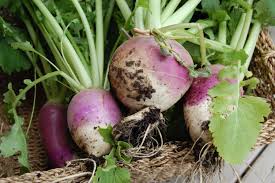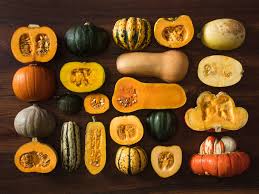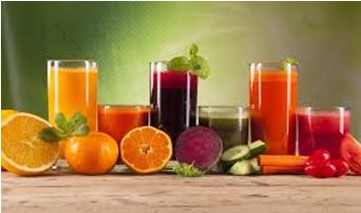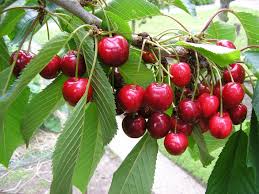Lets turn up the turnip!
Cilantro divides the world into two groups: those that love it and those that hate it!
With turnips, the world is divided into three groups: those that love it, those that don’t know what to do with it and those that are not at all acquainted with it. No one hates it.
So I am happy to present: Brassicaceae family (previously known as cruciferous), genus brassica (same as cabbage), species B. rapa which means turnip.
It is nutritious, healthy and simply delicious.
Turnip was known in Greece, Rome, China and ancient Egypt. It was included in the list of crops of Marduk-baladan of Babylon (reigned 722-711 BC) and it was also in use in our country – it is mentioned in the Mishnah nine times. The Rambam recommended it to strengthen vision and to assist men with sexual relations with women J
The turnip is a tasty and nutritious root, connected to tasty and nutritious leaves (remember, in the cruciferous family we eat all parts of the plant!). There are species of turnip grown specifically for the delicious leaves. These species develop small roots, smaller than the turnip you received in recent weeks. There are also species of turnip grown for the production of seed oil. There is archaeological evidence that during the Neolithic era seed oil was produced from turnip seeds.
Turnip is a seasonal winter crop. The white color indicates the sulfur compounds in it. These compounds fight germs, infections, fungus and many diseases. They also protect the heart and blood vessels, help to balance insulin levels and give the turnip its bitter / sharp taste. Extensive use is made of turnip to remove phlegm and help the respiratory system.
More good things that are in turnip are calcium, potassium, iron and vitamin C.
So you should know: You can eat turnip raw (root and leaves), you can steam it, bake it, fry it, pickle it, add it to soup or to mashed potatoes….It is very versatile and delicious any way you eat it.
Some recipes:
Organic turnips and sweet potatoes in the oven
Turnips in white wine, garlic and lemon
Did you know that the Halloween pumpkin lanterns originated from English/Irish turnip lanterns designed to keep away a dubious guy named Stingy Jack, and that’s why they are called Jack O'Lantern?
May it be a new week, sharp and enlightening!
To health,
The garden team and Maggie
We expected in our organic vegetable baskets (draft only:
spinach
Rocket
Cucumbers
Tomatoes
onions
lettuce
Sweet Potatoes
Leeks
Carrots
And Dill
In the larger organic vegetable baskets, also:
Bunch of turnips
Bunch of beets
celery
Fennel
Organic fruit baskets;
Oranges
Clementines
grapefruit
Sweeties
Larger ones also:
Bananas
And more oranges










